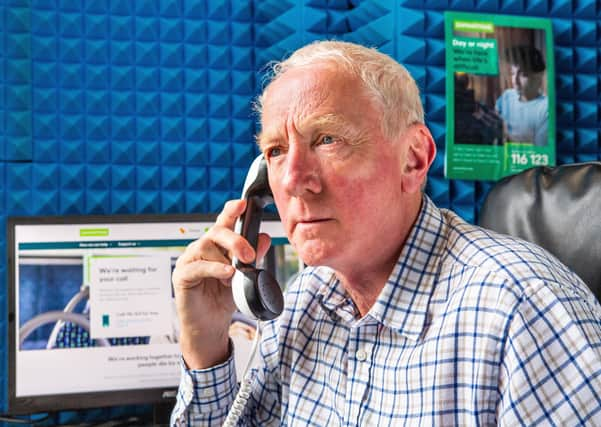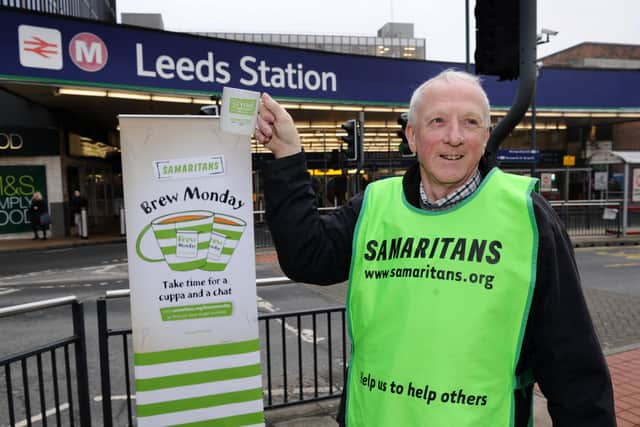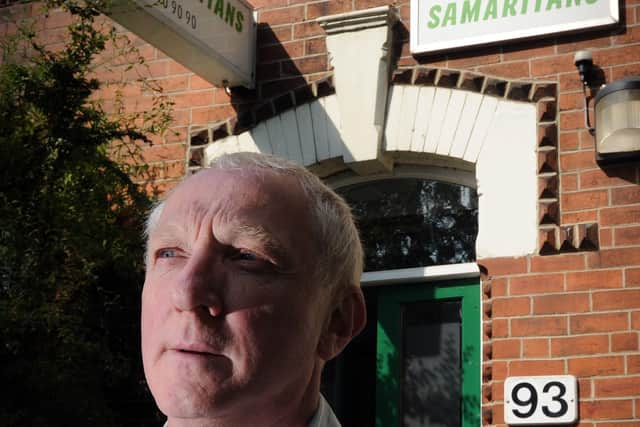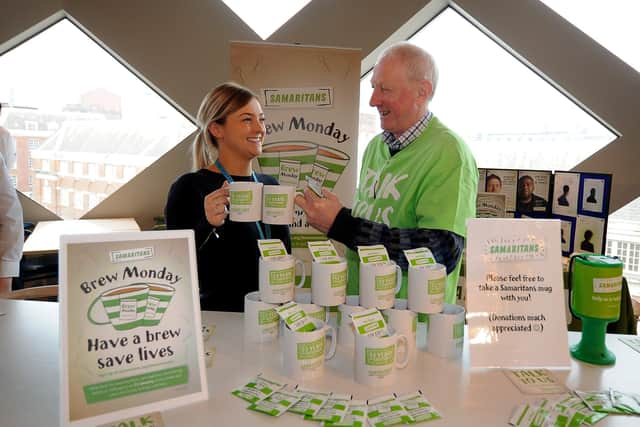Samaritans are gearing up for COVID-19 crisis
This article contains affiliate links. We may earn a small commission on items purchased through this article, but that does not affect our editorial judgement.


Leeds Samaritans has been pulling out all the stops to continue its dedicated 24/7 service during the coronavirus outbreak.
Although it had to suspend its face-to-face chats with people at its Clarendon Road headquarters last week, it is striving to continue its telephone, web and email outreach.
Advertisement
Hide AdAdvertisement
Hide AdBob Howe, who has been a listening volunteer with Leeds Samaritans for 19 years, said: “A lot of work has been done by charities and by ours to try and prepare for the next stage of isolation, to try and keep the service there because it’s more vital then ever.”


Mr Howe, 65, said there hadn’t been a surge in calls as yet from people worried about COVID-19.
He added: “Often when there is a natural disaster somewhere in the world, we have noticed that call levels may actually drop. Whether or not the psychology is people are putting their own lives in perspective, I don’t know.
“I wouldn’t say call numbers have particularly increased. Maybe people are getting more focussed on what they need to do rather than sitting down and dwelling on what’s wrong with them.”
Advertisement
Hide AdAdvertisement
Hide Ad“I’m not saying it won’t happen a week, a fortnight or a month down the line, particularly with the isolation and the loneliness that might come with that. We may get more calls about mental health and loneliness issues.”


A lot of planning has been done behind the scenes to make sure shifts are covered across the branch and further afield. Last week the branch surveyed its volunteers, some of whom are retired. They wanted to see how many were over 70 and find out who had health conditions which might lead to self-isolation.
Mr Howe also said the phone duties could only be done at a branch and not at home. He said this was down to technology issues and that there wasn’t confidentiality in a home setting as family members could overhear what is said.
The branch tries to ensure there at least two volunteers are on duty to safeguard both the volunteers and the callers.
Advertisement
Hide AdAdvertisement
Hide AdMr Howe added: “In some cases we have reduced the number of volunteers on some duties, partly so we can spread across the week better, and partly for the social distancing within the branch. Because if we have two volunteers within the branch we can still be more than two metres apart. But we can still support one another mutually. We can also wipe down and disinfect equipment and still stay safe within the branch.”


Mr Howe, who is also the marketing officer for Yorkshire and the Humber said, they had been working with other branches to ensure there were enough volunteers to cover the calls. He said they were looking at it as a national rota.
He said the Leeds branch had a WhatsApp group and the response from volunteers about covering shifts was “phenomenal”. He praised the dedication of its volunteers, which was summed up by a 92-year-old stalwart. The lady, who has been helping tackle Leeds’ problems for 53 years, wanted to still work but Mr Howe had the task of telling her she had to stay at home in light of the Government’s health advice. Mr Howe said: “Her reply to me was, ‘You’ve made me feel old!’That’s the sort of commitment the volunteers have.
“We only do it because we want to. And in times like this we just want to be there for people.”
Fact file:
Advertisement
Hide AdAdvertisement
Hide AdLeeds Samaritans have had to make changes in the wake of the COVID-19 outbreak.
Normally people can go to the branch at Clarendon Road for a face-to-face chat, but these visits were suspended last Monday amid coronavirus concerns.
But Samaritans are still there for you. A wealth of information about coronavirus and how it can affect your mental wellbeing can be found online.
A link to the regularly updated page can be found at the top of the www.samaritans.org homepage.
Advertisement
Hide AdAdvertisement
Hide AdA spokeswoman said: “We are working really, really hard to minimise disruption to local branches, and our amazing volunteers are doing everything they can to be there to listen to anyone who needs them. In light of government advice, we’ve taken the difficult decision to stop offering face to face support in our branches, and training sessions for new volunteers. But while it might take us longer to answer the phone, or answer emails, we are still here, and working around the clock to make sure we are there for those in crisis.”
She encouraged people to maintain safe social contact while we are physically isolated. These include video messaging, the telephone, texting or a good old chat over the garden fence. She added: “It’s more important than ever for us to feel socially connected, so try and reach out to people to talk, and try to be there to listen to others.”